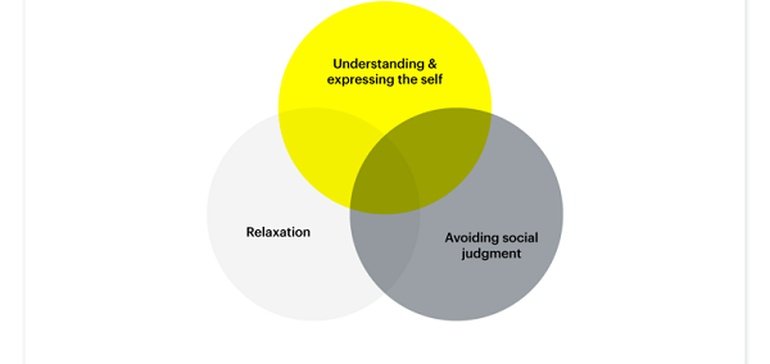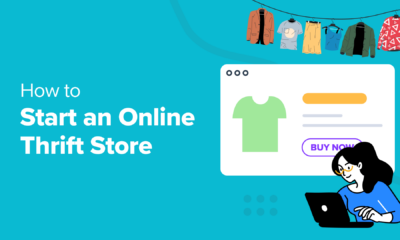SOCIAL
Snapchat Publishes New Report into the Importance of Privacy Tools in Facilitating Online Sharing

Snapchat has published a new report which provides some deeper insight into the importance of online privacy, and the key concerns that users have in regards to the content that they share online.
The report, based on a survey of over 13,500 people in 11 markets, uncovers some valuable considerations for both platforms and marketers, and reinforces the logic behind some of the latest social app developments, in regards to increased user control, encryption, and more. It also sheds light on how such controls – or the lack of them – can influence people’s behavior online.
It’s an interesting overview – you can download Snap’s full, 28-page report here, but in this post, we’ll take a look at some of the key points.
First off, Snap notes that both Snapchatters and non-Snap users are concerned about online privacy, with 81% of respondents noting that online privacy is important. At the same time, only 65% indicated that they’re satisfied with their current privacy options.
That’s a key gap in the current digital connection process which underlines the need for increased control measures on this front, and more options, like private messaging and audience controls, to help reassure users.
Which is the next key point – the report highlights the three key benefits of digital privacy, based on responses.

Each aspect facilitates more open communication, and without relevant measures in place, social platforms are not able to cater to these needs.
Self-expression is one of the most important elements, with users feeling more free to communicate when they’re comfortable with the available privacy tools and options.

Indeed, the majority of respondents indicated that privacy concerns impact what they share online, and how they communicate.

It’s an interesting consideration – originally, with the arrival of MySpace, Twitter and Facebook, there was a new sense of freedom and capacity to share your voice, and connect with like-minded people around the world, based on shared interests. Over time, that’s gradually shifted, as more controversies and concerns have arisen from over-sharing or past post insights, which has seen more people become more enclosed once again, and shy away from public sharing.
Which makes sense, but it also means that what we see online is often not representative of the breadth of views out there, because many people are concerned about what sharing their thoughts and opinions could mean, and how it could potentially be used against them. Which is why more privacy controls can open up greater levels of expression and engagement, and why more people are looking to advanced tools, like messaging encryption, to gain that extra level of assurance.
Which is also why Snapchat has been able to maintain and grow its audience, despite rising competition in the space.

Snapchat has always presented itself as a key alternative for more intimate, private discussion, a place for friends to connect, not to broadcast your life to the world. And while that is also more restrictive, in a content sense, Snap’s approach has clearly resonated with a lot of people, and enabled it to carve a niche in the broader social and messaging space.
The report also goes into depth on the full reasons that influence how and why people share on social, and the tools that people rely on to enhance their experience.

There are some interesting insights and considerations here, which, as noted, largely reflect the latest social media innovations in improved audience controls, evolving private messaging tools, safety functions, reporting and more.
Without these elements, people simply won’t share, and won’t engage online at the same rate. And as we move into the next stage of digital connection, where we’re likely to spend even more time online, and potentially expose even more of ourselves, such measures will remain critically important in order to keep people safe.
You can read Snapchat’s full ‘Global Perceptions of Privacy’ report here.
Source link
SOCIAL
Snapchat Explores New Messaging Retention Feature: A Game-Changer or Risky Move?

In a recent announcement, Snapchat revealed a groundbreaking update that challenges its traditional design ethos. The platform is experimenting with an option that allows users to defy the 24-hour auto-delete rule, a feature synonymous with Snapchat’s ephemeral messaging model.
The proposed change aims to introduce a “Never delete” option in messaging retention settings, aligning Snapchat more closely with conventional messaging apps. While this move may blur Snapchat’s distinctive selling point, Snap appears convinced of its necessity.
According to Snap, the decision stems from user feedback and a commitment to innovation based on user needs. The company aims to provide greater flexibility and control over conversations, catering to the preferences of its community.
Currently undergoing trials in select markets, the new feature empowers users to adjust retention settings on a conversation-by-conversation basis. Flexibility remains paramount, with participants able to modify settings within chats and receive in-chat notifications to ensure transparency.
Snapchat underscores that the default auto-delete feature will persist, reinforcing its design philosophy centered on ephemerality. However, with the app gaining traction as a primary messaging platform, the option offers users a means to preserve longer chat histories.
The update marks a pivotal moment for Snapchat, renowned for its disappearing message premise, especially popular among younger demographics. Retaining this focus has been pivotal to Snapchat’s identity, but the shift suggests a broader strategy aimed at diversifying its user base.
This strategy may appeal particularly to older demographics, potentially extending Snapchat’s relevance as users age. By emulating features of conventional messaging platforms, Snapchat seeks to enhance its appeal and broaden its reach.
Yet, the introduction of message retention poses questions about Snapchat’s uniqueness. While addressing user demands, the risk of diluting Snapchat’s distinctiveness looms large.
As Snapchat ventures into uncharted territory, the outcome of this experiment remains uncertain. Will message retention propel Snapchat to new heights, or will it compromise the platform’s uniqueness?
Only time will tell.
SOCIAL
Catering to specific audience boosts your business, says accountant turned coach

While it is tempting to try to appeal to a broad audience, the founder of alcohol-free coaching service Just the Tonic, Sandra Parker, believes the best thing you can do for your business is focus on your niche. Here’s how she did just that.
When running a business, reaching out to as many clients as possible can be tempting. But it also risks making your marketing “too generic,” warns Sandra Parker, the founder of Just The Tonic Coaching.
“From the very start of my business, I knew exactly who I could help and who I couldn’t,” Parker told My Biggest Lessons.
Parker struggled with alcohol dependence as a young professional. Today, her business targets high-achieving individuals who face challenges similar to those she had early in her career.
“I understand their frustrations, I understand their fears, and I understand their coping mechanisms and the stories they’re telling themselves,” Parker said. “Because of that, I’m able to market very effectively, to speak in a language that they understand, and am able to reach them.”Â
“I believe that it’s really important that you know exactly who your customer or your client is, and you target them, and you resist the temptation to make your marketing too generic to try and reach everyone,” she explained.
“If you speak specifically to your target clients, you will reach them, and I believe that’s the way that you’re going to be more successful.
Watch the video for more of Sandra Parker’s biggest lessons.
SOCIAL
Instagram Tests Live-Stream Games to Enhance Engagement

Instagram’s testing out some new options to help spice up your live-streams in the app, with some live broadcasters now able to select a game that they can play with viewers in-stream.
As you can see in these example screens, posted by Ahmed Ghanem, some creators now have the option to play either “This or That”, a question and answer prompt that you can share with your viewers, or “Trivia”, to generate more engagement within your IG live-streams.
That could be a simple way to spark more conversation and interaction, which could then lead into further engagement opportunities from your live audience.
Meta’s been exploring more ways to make live-streaming a bigger consideration for IG creators, with a view to live-streams potentially catching on with more users.
That includes the gradual expansion of its “Stars” live-stream donation program, giving more creators in more regions a means to accept donations from live-stream viewers, while back in December, Instagram also added some new options to make it easier to go live using third-party tools via desktop PCs.
Live streaming has been a major shift in China, where shopping live-streams, in particular, have led to massive opportunities for streaming platforms. They haven’t caught on in the same way in Western regions, but as TikTok and YouTube look to push live-stream adoption, there is still a chance that they will become a much bigger element in future.
Which is why IG is also trying to stay in touch, and add more ways for its creators to engage via streams. Live-stream games is another element within this, which could make this a better community-building, and potentially sales-driving option.
We’ve asked Instagram for more information on this test, and we’ll update this post if/when we hear back.
-

 MARKETING7 days ago
MARKETING7 days agoBattling for Attention in the 2024 Election Year Media Frenzy
-

 WORDPRESS6 days ago
WORDPRESS6 days ago13 Best HubSpot Alternatives for 2024 (Free + Paid)
-

 MARKETING6 days ago
MARKETING6 days agoAdvertising in local markets: A playbook for success
-

 SEARCHENGINES6 days ago
SEARCHENGINES6 days agoGoogle Core Update Flux, AdSense Ad Intent, California Link Tax & More
-

 AFFILIATE MARKETING7 days ago
AFFILIATE MARKETING7 days agoGrab Microsoft Project Professional 2021 for $20 During This Flash Sale
-

 SEARCHENGINES5 days ago
SEARCHENGINES5 days agoGoogle Needs Very Few Links To Rank Pages; Links Are Less Important
-

 PPC4 days ago
PPC4 days ago10 Most Effective Franchise Marketing Strategies
-

 MARKETING5 days ago
MARKETING5 days agoHow to Use AI For a More Effective Social Media Strategy, According to Ross Simmonds
















You must be logged in to post a comment Login